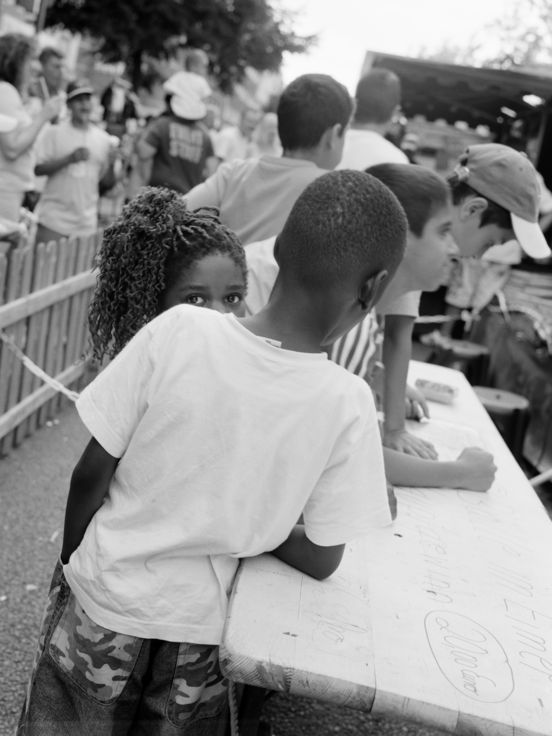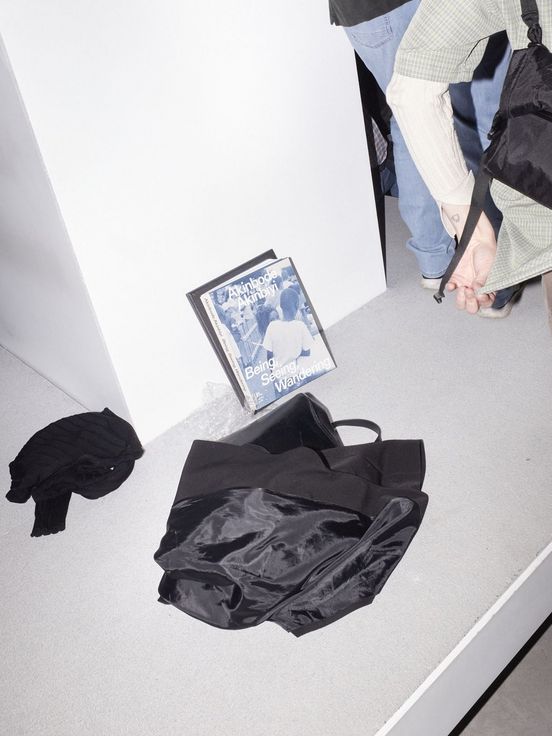Series
Works from seven of those series are on show at the Berlinische Galerie.
The series “Photography, Tobacco, Sweets, Condoms, and Other Configurations” has been evolving since the 1970s during forays through urban landscapes around the world. Akinbiyi comes across vending machines, random arrangements in urban space. This series is also a reflection on how photographic images are presented and consumed.
In “Lagos: All Roads” Akinbiyi has been recording social inequalities in the exploding city since the 1980s and illustrating the persistent influence of colonial structures.
Akinbiyi has likewise been returning since the 1980s to Bar Beach in Lagos. Images in the long-term series “Sea Never Dry” show rituals from Yoruba religion infused with elements of Christianity alongside everyday life on the busy shoreline.










